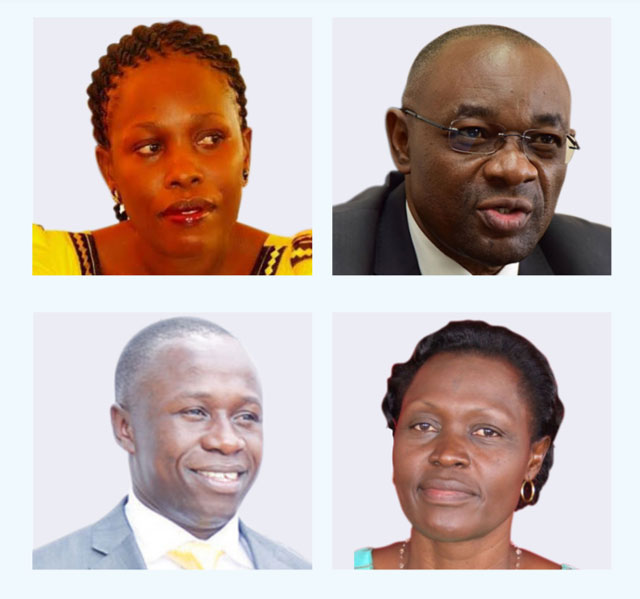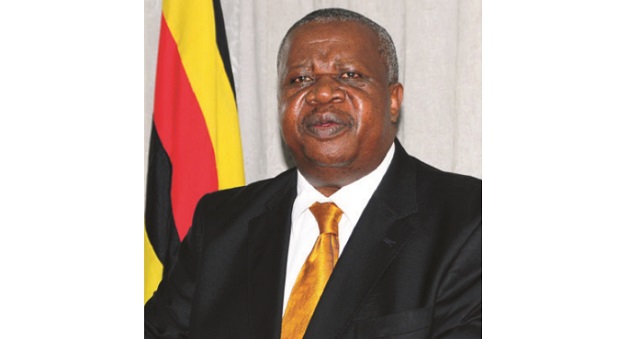
The inside story of the cabinet reshuffle
Kampala, Uganda | IAN KATUSIIME | President Yoweri Museveni on Dec.14 made an impromptu reshuffle of his cabinet, a step that a section of the public linked to the upcoming 2021 general elections.
But the most significant concern in the reshuffle is the appointment of Gen. Kahinda Otafiire, a Museveni longtime comrade, as minister for East African affairs at the time the Rwandan delegation was in Kampala to meet its Ugandan counterpart over the deteriorating relations between the two countries that had led to the former to close the border in February last year.
The Rwandan government had previously complained to President Museveni’s government about Otafiire, describing him as an “anti-Rwanda agent,” according to reliable sources.
The Rwandan delegation was led by Rwanda’s minister for East African Community (EAC) Olivier Nduhungirehe as it interfaced with their Ugandan counterparts led by Sam Kutesa, minister for Foreign Affairs, at Commonwealth Resort Munyonyo.
The meeting was also attended by officials from Angola and Democratic Republic of Congo. Angola hosted the signing of a pact between Rwandan President Paul Kagame and Museveni in August.
Sources told The Independent that Museveni tapped Otafiire, a longtime minister in his cabinet as a counter offensive to Nduhungirehe who has been known for issuing explosive statements against Uganda since the bilateral relations broke down.
Museveni’s decision to keep Philemon Mateke, the minister for Regional Affairs, has also been described by sources as “a clear signal to Rwanda.”

Away from the behind-the-scenes decisions on Rwanda, is Museveni intent on securing votes in the next general election.
His decision to reshuffle cabinet demonstrates his strategy ahead of an election where he faces an untested challenger in Kyadondo East MP Bobi Wine with whom they are battling on many fronts.
In the reshuffle, Museveni rewarded the loyalists who spearheaded the age limit amendment, ejected two ministers in the key dockets of Energy and Works but more crucially appointed those with constituencies to canvass votes for him and the ruling National Resistance Movement (NRM) party.
Importantly, the election year, 2021, is fast approaching and Museveni has his sights on who among the ministers can bring him votes amid an ageing cabinet. The dilemma Museveni finds himself in is whether the loyalists he has rewarded can keep their seats in parliament let alone lure voters to give him a sixth term.
Igara West MP Raphael Magyezi, who tabled the motion to amend the presidential age limit is the next minister for Local Government. He is also a former chairperson of the parliament committee on Local Government.
One of the seconders of his motion, Kyaka South MP Jackson Kafuuzi, joins him in cabinet as the deputy Attorney General. Another zealous supporter of the removal of the age limit who was rewarded is Usuk County MP Peter Ogwang, the new minister of state for Information and Communication Technology (ICT).
This was arguably the most anticipated cabinet reshuffle because of the battle lines drawn by amending the constitution in 2017 to ensure Museveni has another chance to run again as president. With NRM MPs being warned point blank by their constituents against tampering with the constitution, those who actively campaigned for the amendment were seen as not just staking their political survival but their human lives as well.
Therefore for Magyezi, Kafuuzi and Ogwang, it was the perfect Christmas gift after two years of waiting. They endured intimidation and threats after they voted to remove the age limit.
 The Independent Uganda: You get the Truth we Pay the Price
The Independent Uganda: You get the Truth we Pay the Price



